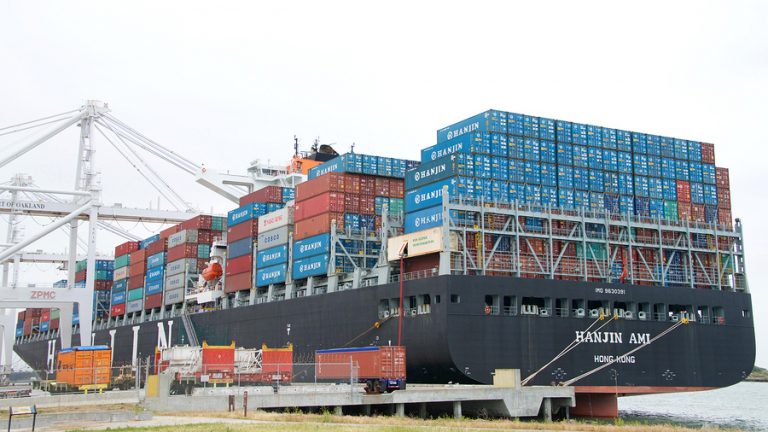When Will Dinner Be Ready?
This is a serious question: How long does it take to grow your own food? There’s no easy answer, but give it a little thought. If you woke up tomorrow and the grocery store was empty, how long would it take before you could provide food for your family to eat?
Let’s assume that you’re an accomplished gardener. You have good soil and you know what to do, but you’re starting from scratch…
You can grow some radishes in about 30 days. About 70 days for carrots. You could have some tomatoes in about 100 days. Now, if you wanted to eat a chicken, we’re talking about more like 4 or 5 months – and make it 6 months if you want eggs.
So, starting from scratch, an accomplished gardener could whip up a tasty salad in about 3 months. The bad news? It only takes 40 days to starve to death.
What’s My Point?
Venezuela is undergoing a catastrophic food shortage right now. It’s as bad as it gets – the total collapse of a food system that relied heavily on imports. The grocery stores have already been ransacked, the people are starving, and food shipments are being transported under armed guard.
Amid this overwhelming and life-threatening crisis, the government has formally advised its people that they should begin to grow their own food and raise their own chickens. Can you imagine that?
Even if you’re an expert, gardening takes a lot of time. Now let’s assume that you’re not an expert. Now you’re someone who has never before planted a single seed…
Read more: Are You Prepared for Peak Chicken?
How Long Does it Really Take to Grow Food?
Developing a rich soil that produces consistently might take you a few years, depending on what you start with. Tack on another few years to learn the basics about when you should plant and when you should harvest. In the meantime, you’ll also need to learn about pest and disease management, nutrient deficiencies, pollination, crop rotation… the list goes on.
How long does it really take to grow food? The short answer is… it takes a lifetime. Ask an old-timer with a thriving garden how long it would take them to show you what they know, and there’s a fair chance they’ll throw their head back and laugh out loud.
For someone who has never sunk a shovel into the ground to consistently produce food on their own would take several years, at least.
Read more: 10 Reasons to Garden NOW
Is Your Food Security At Risk?
Regardless of the type of government or the people in power, any population that relies on imports for its food supply could be the next Venezuela. Any number of scenarios could disrupt the supply and leave the importer without food. When you rely on food imports, you accept the risk that tomorrow’s food shipment might not show up… for any reason.
So the question for each of us becomes, “Does my country rely on food imports?” If you live in the United States, the answer is clearly yes. The U.S. imports more food than any other country on earth, followed by China, Germany, Japan, and the UK.
I’m sure that some people will call this fear mongering, but my intent is just the opposite. I hope that people won’t just look the other way and pretend that this could never happen to us. Instead, we should take a good long look at the situation, learn from it, and begin to make changes in our own lives to take responsibility for our own food security.
Sources:
1: Venezuelans Ransack Stores as Hunger Grips the Nation. New York Times (http://www.nytimes.com/2016/06/20/world/americas/venezuelans-ransack-stores-as-hunger-stalks-crumbling-nation.html?ribbon-ad-idx=4&rref=world&smid=pl-share&_r=0&version=SlideCard-12&slideshowTitle=A%20Hungry%20Nation¤tSlide=12&entrySlide=1&module=ArrowsNav&contentCollection=Americas&action=swipe®ion=FixedRight&pgtype=article)
2: Food shortages take toll on Venezuelans’ diet. The Guardian (https://www.theguardian.com/world/2016/may/24/venezuela-crisis-basic-food-shortages)
3: The Science of Starvation: How long can humans survive without food or water? Public Library of Science (http://blogs.plos.org/obesitypanacea/2011/05/13/the-science-of-starvation-how-long-can-humans-survive-without-food-or-water/)
4: Countries Most Dependent On Others For Food. WorldAtlas (http://www.worldatlas.com/articles/the-countries-importing-the-most-food-in-the-world.html)









COMMENTS(9)
Even experienced gardeners with a large established garden would probably starve within a year if only relying on that. I’ve tried it, and it’s tough to grow even 70% of your own food (which is still worth doing!!)
Michael, I think we would need community gardens, like Victory gardens, taking up every possible space. Plus community canning kitchens and work-bees, like the Mormons used to do (and some still do). A single garden island can’t make it.
Cuba is a good example of a country becoming close to self-sufficient in food, with very low fossil fuel inputs, after the Russian support stopped. They also instituted a system of distributing food fairly, with basic support for everyone. That’s another key to surviving a Venezuela-like shift.
Hi Alex – I totally agree with you about “A single garden island can’t make it.” One of the things we like to talk about when we get together for Grow Network meetings/parties is, “What percentage of the population needs to know how to grow food – so that there are enough teachers to teach the rest?” Something to think about…
I recently watched a net news report on the onrushing disaster Venezuela is facing. Neatly dressed city residents were patiently standing in long, long lines waiting for hours for medical care at clinics where they have run out of medical supplies and broken equipment was taped together or jury-rigged so that some patients got some care. Many patients just lay on the floor with no one to take care of them. The same residents would wait in long, long lines for rationed food, some of which was available on the black market for several hundred percent more that the government was charging. They expected the government to take care of them despite a stream of grim announcements about the economic crisis they were in. These are people who lived in small villages as family farmers only one or two generations ago. My constant thought was “Why weren’t they out foraging for food and herbs (Is it against the law? Is it too dangerous to travel?)? Why aren’t they setting up tower gardens, rooftop gardens, balcony gardens, window planters? Fortunately some of our fellow citizens are slowly waking up. This is the first year that my country neighbors and near relatives, most of them retired, are going beyond lawn maintenace this year. They are trying out food growing systems, planting onions in their flower beds, watching youtubes about growing their own lettuce and tomatoes. The Grow Network and all the other thousands of food activists who have sweetly shouted themselves hoarse at a mighty unconscious nation have reached the germination phase. There are about 60 days left in my growing season. I planted extra and will do the best job I can of saving seed and passing it along. The best thing that could happen is the neighbors on either side of us turn some soil and plant a few vegetables. Just that much of a taste would mark the turning of a vital tide.
Hi Sandy – Your comment reminds me of a quote that Marjory recites all the time: “Never doubt that a small group of thoughtful, committed citizens can change the world; indeed, it’s the only thing that ever has.” – Margaret Mead
I see a problem with getting the word out how serious a problem this is. Instead of all the lawns, we need to grow food in these grassy areas and also teach people how to grow food. Very few people know how, and none of the youth want to learn. Our society has lost the ability to feed themselves. Our children have no idea where food comes from. Our soil has been grazed to death for meat. People believe food will always be there because most people have never gone hungry. Years ago, when my children attended a private school, I tried to get them to have the children plant a garden. I was laughed at. I wonder who will be laughing when the only food in my neighborhood will be in my garden.
In many areas, there are laws against growing anything BUT grass. The first step then, would be to get the laws, regulations, etc, changed. Also we need more education.
I think we gardeners/preppers also need to be focused on perennials – including nuts (which provide high calories, proteins and fats – something few vegetables, fruits, or even grains do). If one doesn’t have space for a nut tree, there are smaller options – Chinquapins, hazelnuts, whatever – you don’t necessarily need a lot of space. Research what works for your bioregion – permaculture books and web sites are good for that.